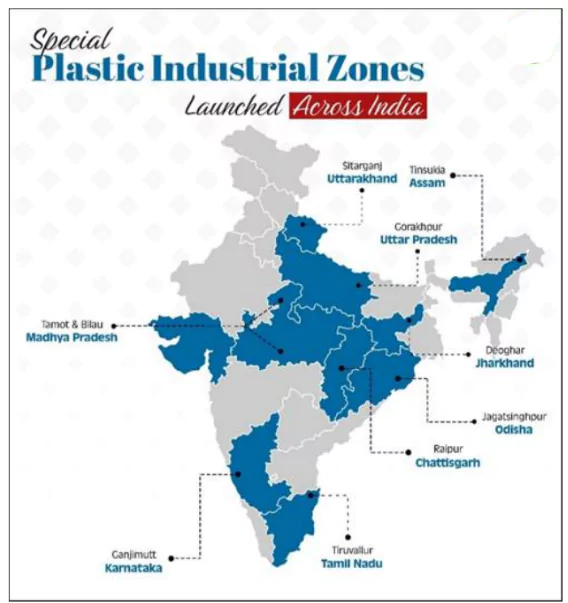![]() 12 Apr 2025
12 Apr 2025

The Department of Chemicals and Petro-Chemicals is implementing the Plastic Parks Scheme under the New Scheme of Petrochemicals.
Stages of Plastic Production
|
|---|
 Approved Parks: 10 Plastic Parks have been approved across various states.
Approved Parks: 10 Plastic Parks have been approved across various states.<div class="new-fform">
</div>